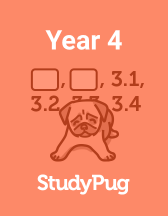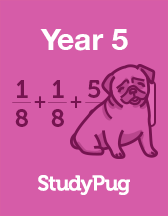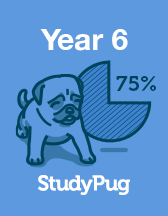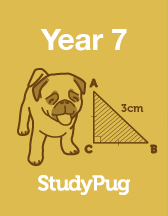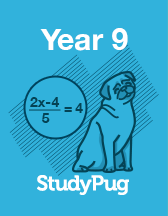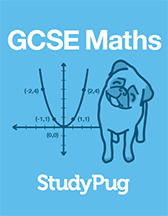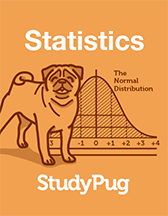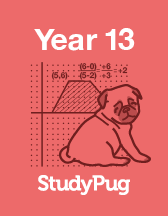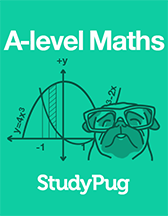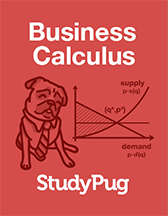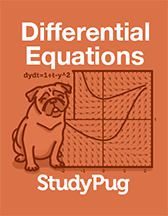Master A-Level Maths
Step-by-step solutions for exam success and university prep
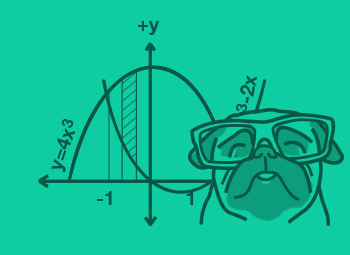
📈
A-Level maths marks improve 10-15%
✨
Pure mathematics mastery
💡
Statistics and mechanics confidence
📚
University mathematics preparation

Step-by-Step Solutions
Master pure maths, mechanics, and statistics

Perfect Curriculum Match
Aligned with your specific A-Level exam board requirements

Guaranteed Results
Most students improve one letter grade in 4-6 weeks
A-Level Maths Topics
Surds
Laws of Indices
Linear Functions
Factorisation
Quadratic Functions
Quadratic Equations
Inequalities
Simultaneous Equations
Operations with Algebraic Fractions
Absolute Value Functions
Algebraic Division
Functions
Transformations of Functions
Reciprocal Functions
Rational Functions
Exponentials Functions
Logarithms
Applications of Exponential and Logarithmic Functions
Trigonometry
Trigonometric Ratios and Angle Measure
Sine Rule and Cosine Rule
Graphing Trigonometric Functions
Applications of Trigonometric Functions
Trigonometric Identities
Solving Trigonometric Equations
Circle Theorems
Sequences and Series
Binomial Expansion
Vectors
Differentiation
Integration
Parametric Equations
Differential Equations
Statistics
Data and Graphs
Discrete Probabilities
Normal Distribution and Confidence Intervals
Correlation and Regression
Hypothesis Testing
Scalars, Vectors, and Motion
Forces
Momentum
Is A-Level Maths Hard?
Advanced level maths or "A-Level maths" as its more commonly known, builds upon the topics you would have studied in school, venturing into more complex aspects of mathematics. With that in mind, it's easy to see why so many students fear that A-Level maths may be a bit too difficult for them.
If you've passed GCSE maths, you will be capable of studying A-Level maths. You may find it challenging at times, but with a firm grasp of the basics, you'll find that the problems faced in A-level maths aren't as complicated as they initially seemed.
To assist you in your attempts to conquer A-level maths, StudyPug has a rich collection of video lessons that cover every aspect of the curriculum. Ourvideo tutorials will explore everything you'd expect to find in your exams, and we'll deliver helpful step-by-step examples in plain english, ensuring you learn and retain the necessary information.
Whether you need help with Cosine and Sine rule, integration by parts, circle theorems, or any other topic, our collection of useful revision strategies and proven tips will get you learning in no time at all.
Furthermore, our tutors have worked to ensure that we provide simple solutions to even the trickiest of A-level maths problems. Our online content reflects the same material you'd expect to find in modern textbooks, and our tutorials are suitable guides for all maths exams regardless of the examining body (AQA, Edexcel, MEI, WJEC or OCR).
Don't worry if you're not entirely confident in your maths ability just yet. Our "A-Level maths for dummies" approach to teaching, assumes no prior knowledge and starts from the basics, taking A-Level maths step-by-step. However, if you are relatively confident in your maths abilities, you can skip past the content or fast-forwarded the information you don't need.
What is A-Level Maths Like?
A-Level maths is split into two different programs of study. There is the AS Level maths course, which is a one year course, and the A-Level Maths course, which is a 2 year course that incorporates the AS program as it's first year of content.
Students on both courses will be given a choice as to what modules they study. The modules available are listed below:
- C1-4 - Core Maths
- D1 & D2 - Decisions
- M1 & M2 - Mechanics
- S1 & S2 - Statistics
All students on either the AS or A-level maths program will be required to study the C1-4 modules. Students on the AS program will then pick one additional module to study (statistics, mechanics, or decisions). A-Level students will be required to pick two.
Popular topics covered on the A-level program are as follows:
- Binomial expansion
- Chain rule
- Surds
- Geometric series
- Laws of indices
- Factor theorem
- Factorization
- Parametric equations
How Can I Get an A in A-Level Maths?
To give yourself the best possible chance of securing an A grade in your A-level exams, you'll need to revise on a regular basis, so make time and get yourself into a weekly study routine. Within the routine, you should be reviewing your class notes (which you should be taking!), completing homework, and testing yourself using online worksheets and A-Level maths past papers.
Using past papers will build your confidence and time management ahead of exams. They will also allow you to single out any areas of weakness that needs addressing. Make note of the areas you need to improve upon and visit our site to review our content on the topic. Watch the videos, take notes, resit past papers, and chart your progress. Keep this routine up and you'll soon see improvements in your performance as you strengthen your knowledge across all aspects of A-level maths.
If you're not in a position to subscribe to our services, we do offer a collection of free A-Level Maths lessons across the following subject areas:
- Converting Radicals to Entire Radicals
- Distance Formula
- Graphing Linear Functions Using x- and y-Intercepts
- Factor by Taking Out the Greatest Common Factor
- Characteristics of Quadratic Functions
- And Many More
Finally, during the marking process, examiners will look to see if you've arrived at the solution through an understanding of the problem or if you've just employed simple memorization skills. With this in mind, attempt to show your working out where possible. Taking every step to demonstrate your understanding, could result in additional marks, turning a B grade into an A grade.
What Calculators are Allowed in A-Level Maths?
Each examining board follows the JCQ (Joint Council for Qualifications) regulations when it comes to rulings on acceptable calculators in exams.
The regulations below are taken directly from the JCQ website:
Calculators must be:
- Of a size suitable for use on the desk
- Either battery or solar powered
- Free of lids, cases and covers which have printed instructions or formulas
Calculators must not:
-
Be designed or adapted to offer any of these facilities:
- translators
- Symbolic algebra manipulation
- Symbolic differentiation or integration
- Communication with other machines or the internet
- Be borrowed from another candidate during an examination for any reason
-
Have retrievable information stored in them - this includes:
- Databanks
- Dictionaries
- Mathematical formulas
- Text
Is it Worth Getting my A-Level Maths Paper Remarked?
Understandably, receiving a grade lower than you were expecting can be frustrating. This is made even more frustrating when you need a specific grade for college enrollment or for employment purposes. If this happens to you, you should look into how many marks away from the next grade you were. If its fewer than 5 marks, you may find that it's worth the cost of a remark.
If you want a remark, you'll need to consult with your teacher and see if they also believe you could get a few extra marks. Depending on your examining body and type of remark required, you'll have to pay anywhere between £10 and £57.
| AQA | Edexcel | OCR | WJEC | Deadline | |
|---|---|---|---|---|---|
| Access to Marked Paper | £13.95 | Free | £11.40 | £11.40 | Aug 24 |
| Priority Remark | £50.30 | £49.70 | £56.30 | £46 | Aug 24 |
| Full Re-mark | £42.25 | £41.70 | £45.60 | £36 | Sept 21 |
| Clerical Re-check | £16.10 | £11.20 | £16.40 | £10 | Sept 21 |
As you can see, it's not a cheap process so please keep in mind that remarking should only be done if you're close to achieving a higher grade. A remark won't change a D grade to an A, but it may just change that failing grade into a pass.
